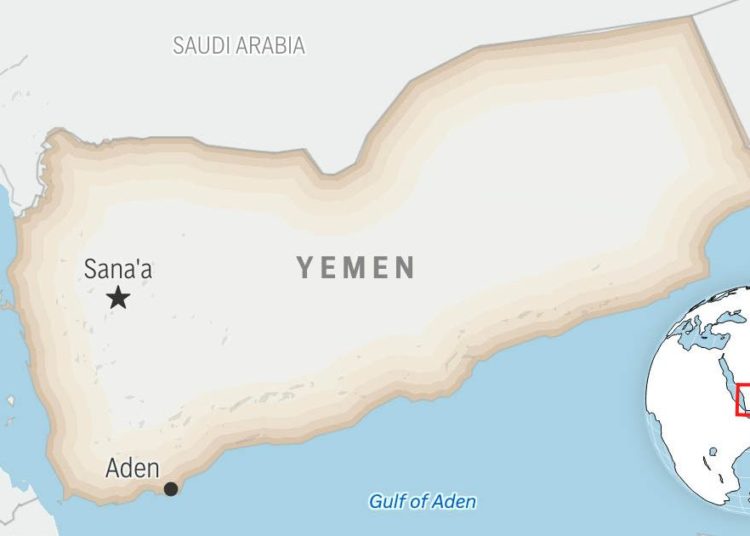Welcome back to Foreign Policy’s Situation Report. We’re back to our regularly scheduled programming after the nonstop action at UNGA 80 last week. Thanks again for reading our coverage!
Alright, here’s what’s on tap for the day: Trump offers security guarantees to Qatar, Ukraine is set to get U.S. help with targeting Russia, and Trump tells Congress the United States is at war with drug cartels.
Defending Doha
U.S. President Donald Trump signed an executive order on Monday that offers Article 5-like security guarantees to Qatar—opening the door for a U.S. military response to an attack on the tiny, exorbitantly wealthy nation.
The order states that Washington will regard “any armed attack on the territory, sovereignty, or critical infrastructure” of Qatar as “a threat to the peace and security of the United States.” It goes on to say that in the event of such an attack, the United States will take all “lawful and appropriate” diplomatic, economic, and military measures to defend its interests and those of Qatar.
It’s highly unorthodox for a U.S. president to make unilateral security guarantees to another country. That said, the unprecedented move carries little legal weight. Under the U.S. Constitution, only Congress can declare war, and the ratification of treaties requires Senate approval. A future president could easily undo an executive order like this, unlike legislation passed by Congress.
But presidents still have broad authority over the military under Article II of the Constitution and can order U.S. forces to take actions deemed necessary for national security. Trump has also already shown that he’s willing to use military force without congressional approval.
Qatar first? Trump signing an order that could see U.S. troops committed to the defense of a Middle Eastern country veers sharply from his push for an “America First” foreign policy. Though the language of the order gives Trump some wiggle room on how to respond to an attack on Qatar, any involvement of troops in response to such an incident would also undermine the president’s pledge for “no new wars” during his second term.
Trump signed the order just a few weeks after Israel bombed Qatar to target senior Hamas leaders in Doha. The strike failed to take out any top Hamas figures, but it did kill five of the group’s members and a Qatari security officer.
Doha was enraged over the strike, and Israeli Prime Minister Benjamin Netanyahu apologized to the country in a phone call at the White House after facing pressure from Trump. But although Trump was clearly unhappy with Israel over the strike, it also seems extraordinarily unlikely that he would respond to a future Israeli attack on Qatar with military force.
Israel is a top U.S. ally, and no recent president has taken any significant steps to punish it for various actions it’s taken in the name of its security across the region. But at the very least, the new executive order is a signal to Israel and other countries that Trump takes Qatar’s security seriously.
Trump’s Qatar dealings. The United States has had close ties with Qatar, which Washington considers a major non-NATO ally, for years. The largest U.S. military base in the Middle East, Al Udeid, is located in Qatar, roughly 20 miles southwest of Doha. Al Udeid was targeted by Iran in June after U.S. strikes on Iranian nuclear facilities.
Qatar has viewed the U.S. military presence within its borders as well as Doha’s role as a mediator in conflicts such as the war in Gaza as a means of assuring its security in an often-volatile region. But the Iranian attack and the more recent Israeli strike challenged that perception. Though Doha has signaled that it will continue to play the role of mediator even after the Israeli attack, Trump’s executive order offers Qatar far stronger security guarantees.
In 2017, Trump said Qatar has “historically been a funder of terrorism at a very high level.” But Trump in his second term has placed particularly high value on relations with the country, which gifted him a $400 million 747 jetliner earlier this year that will eventually be used as the new Air Force One.
The Trump Organization also made a deal in April to build a multibillion-dollar luxury golf resort in Qatar. The planned resort has already faced criticism from ethics watchdog groups, and the new executive order is likely to place Trump’s dealings with Qatar (and Gulf countries more generally) under an even more uncomfortable spotlight—while also raising questions about his purported commitment to keeping the United States out of foreign entanglements.
Let’s Get Personnel
Hundreds of thousands of U.S. federal government employees remained furloughed for the second straight day on Thursday, with negotiations to end the country’s first government shutdown in nearly seven years expected to drag on into next week. That has big implications for U.S. foreign policy, as Rishi wrote yesterday, from disaffected intelligence operatives to European diplomats having to potentially cancel official visits. If you’re wondering whether the United States is the only country where the government semi-regularly shuts down (it is) and why, John has you covered.
Meanwhile, Mike Waltz, Trump’s former national security advisor who made his post-Signalgate debut as U.S. ambassador to the United Nations at UNGA last week, will not be considered a member of Trump’s cabinet any longer, CBS News reported.
On the Button
What should be high on your radar, if it isn’t already.
Pressure on Hamas. Hamas leaders are reportedly weighing whether to accept Trump’s 20-point peace plan to end the war in Gaza, which the U.S. president made public on Monday during a White House meeting with Netanyahu. Trump said he would give Hamas roughly until the end of this week to accept or reject the proposal, with the White House on Wednesday sharing statements from several world leaders including Canadian Prime Minister Mark Carney and French President Emmanuel Macron urging the militant group to agree to Trump’s plan.
Hamas is also facing pressure from Palestinians in Gaza, several of whom told the New York Times in interviews that they hope the group’s leadership will accept the deal.
However, the plan contains several concessions that Hamas is likely to find unacceptable, including the release of all remaining hostages the group has captive in Gaza before the complete withdrawal of Israeli troops. The plan also calls for Hamas to completely disarm, a demand the group has rejected in the past.
Israel, meanwhile, intercepted and seized several boats that were part of a flotilla aimed at delivering aid to Gaza, detaining several activists including Greta Thunberg and a grandson of Nelson Mandela. Israel’s foreign ministry said on X that the activists will be deported to Europe.
Ukraine to get U.S. intelligence. The Trump administration will start providing Ukraine with the intelligence it needs to strike targets deep inside Russia, the Wall Street Journal reported, potentially allowing the Ukrainian military to hit Russian power plants and refineries and curb the energy revenues that have kept Moscow’s war effort going. Trump is also weighing giving Ukraine weapons such as Tomahawk missiles capable of carrying out such strikes.
The boost for Ukraine comes amid Trump’s frustration with Russian President Vladimir Putin and the lackluster Russian commitment to a peace process, as well as increased pressure from Ukraine’s European allies who are moving toward tapping frozen Russian assets to help Kyiv and establishing a drone wall to counter Russian incursions into their borders in recent days.
Trump’s cartel war. Trump’s pledge to start “no new wars” in his second term is getting more distant by the week. The U.S. president has decided that his administration is officially in an armed conflict with Latin American drug cartels whose alleged boats it has repeatedly targeted with military strikes, according to a note to Congress reported by the New York Times.
Trump’s decision could further escalate a legal fight over presidential war powers that multiple Democratic lawmakers have spoken out about.
Snapshot

Put on Your Radar
Tuesday, Oct. 7: U.S. House of Representatives scheduled to reconvene amid government shutdown.
Putin turns 73.
Wednesday, Oct. 8: European Parliament debates Russian violations of EU airspace.
Friday, Oct. 10: Nobel Peace Prize winner announced.
By the Numbers
185: The number of Ukrainian soldiers returned to the country in its latest prisoner swap with Russia Ukrainian President Volodymyr Zelensky said on Thursday. Ukraine also got back 20 civilians in the exchange.
Quote of the Week
“He worked very hard.”
—Albanian Prime Minister Edi Rama to Macron in front of Azerbaijani President Ilham Aliyev, poking fun at Trump’s misstatements that he ended a conflict between Azerbaijan and Albania (it was actually Azerbaijan and Armenia).
This Week’s Most Read
- Robert McNamara Chose Loyalty to the President by Julian E. Zelizer
- How Military Leaders Should Respond to Trump’s Norm-Busting by Peter D. Feaver and Heidi A. Urben
- Trump’s Speech to Generals Was Incitement to Violence Against Americans by Kori Schake
The post Qatar First? appeared first on Foreign Policy.




